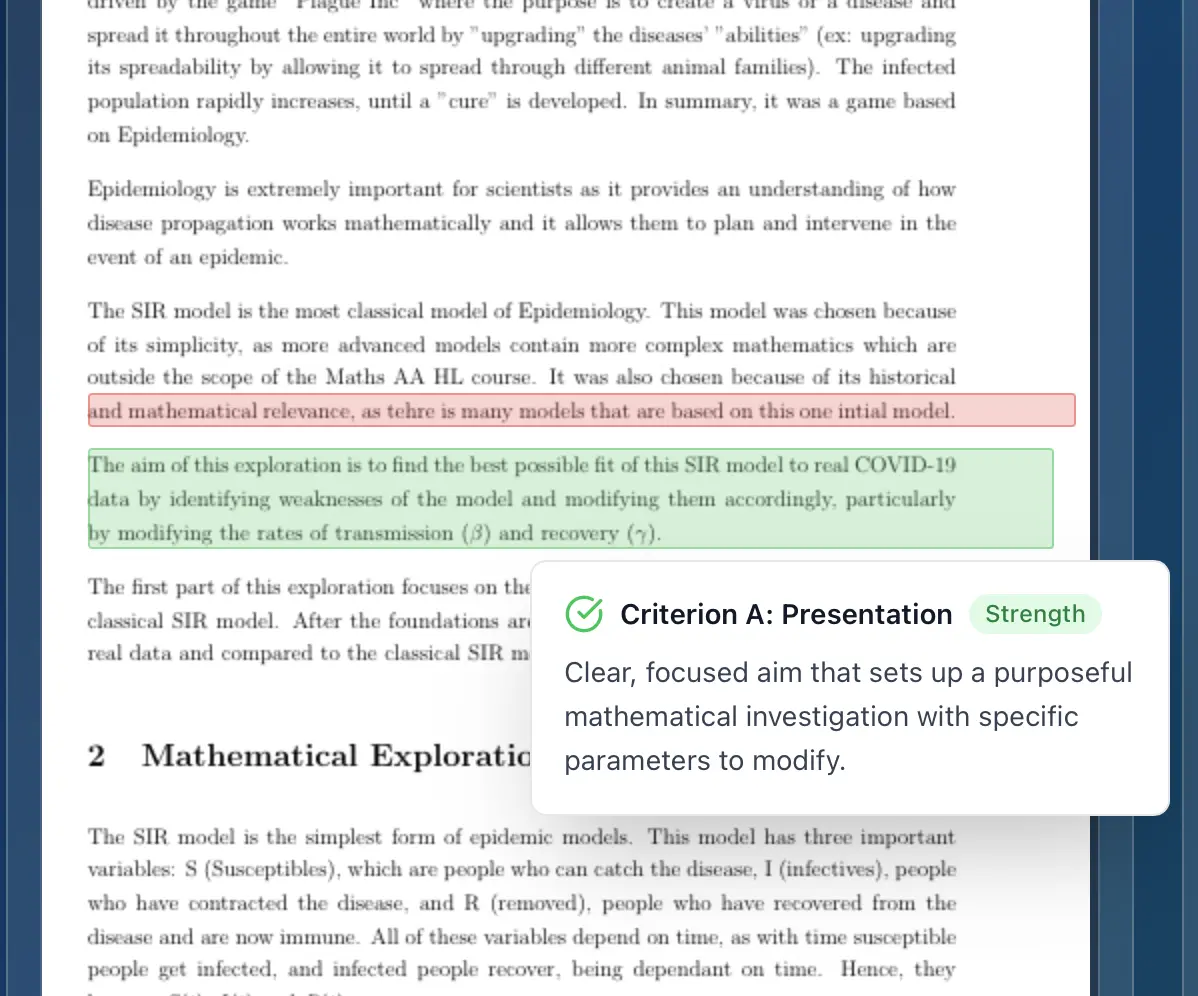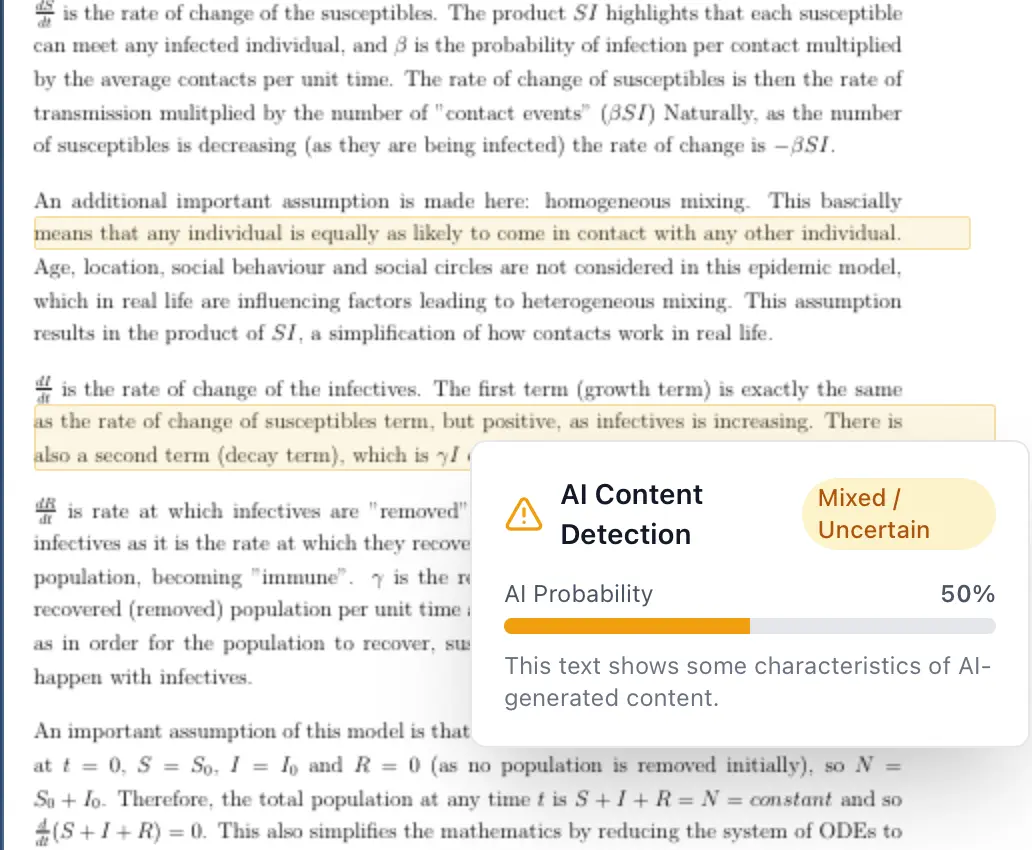Choosing a Compelling Research Question for Your IB Geography IA
Crafting a strong research question is the cornerstone of a successful IB Geography Internal Assessment (IA). It's the compass that guides your investigation, analysis, and ultimately, your final grade. A well-defined question not only demonstrates your understanding of geographical concepts but also sets the stage for focused data collection and meaningful analysis. This blog post will guide you through the process of selecting a compelling research question, ensuring it aligns with the IB syllabus, is feasible for fieldwork, and has the potential to earn you top marks. We'll cover everything from brainstorming ideas to refining your question for maximum impact. Let's get started on your journey to IA success!
Introduction (Answer the Query Immediately)
The IB Geography Internal Assessment (IA) is a significant component of your final grade, and a compelling research question is the foundation of a successful IA. Choosing the right question is crucial because it dictates the scope of your investigation, the data you collect, and the analysis you perform. A strong research question should be geographical in nature, clearly linked to the IB Geography syllabus, and allow for primary data collection in a specific location. This post will provide you with practical tips and examples to help you formulate a research question that not only meets the IB criteria but also sparks your intellectual curiosity. We'll explore how to connect your question to geographical theories, ensure its feasibility, and ultimately, help you achieve a high score.
Struggling with IB Assessments?
Get instant, detailed feedback on your work with AI that understands IB criteria.

Core Content Sections
Understanding the Importance of a Strong Research Question
Your research question is more than just a sentence; it's the driving force behind your entire IA. A well-crafted question:
- Provides Focus: It narrows down a broad topic into a manageable and investigable area.
- Guides Data Collection: It dictates what data you need to collect and how you should collect it.
- Facilitates Analysis: It provides a framework for interpreting your findings and drawing meaningful conclusions.
- Demonstrates Understanding: It showcases your grasp of geographical concepts and their application to real-world scenarios.
- Impacts your Grade: As per Criterion A: Fieldwork Question and Geographic Context (0-3 marks), a clear and focused question directly impacts your score.
Brainstorming Potential Research Topics
Before you can formulate a research question, you need to identify potential topics that interest you and align with the IB Geography syllabus. Consider these areas:
- Urban Geography: Urban sprawl, gentrification, transportation, urban heat islands.
- Environmental Geography: Deforestation, pollution, climate change impacts, resource management.
- Development Geography: Poverty, inequality, globalization, sustainable development.
- Coastal Geography: Coastal erosion, tourism impacts, mangrove ecosystems, sea-level rise.
- Geomorphology: River processes, glacial landforms, weathering and erosion.
Example Topics and Potential Research Areas:
- Topic: Tourism
- Potential Research Area: The impact of tourism on the local economy and environment in a specific coastal town.
- Topic: Urbanization
- Potential Research Area: The relationship between urban green spaces and air quality in a specific city.
- Topic: Climate Change
- Potential Research Area: The effects of rising sea levels on coastal communities in a specific region.
Refining Your Topic into a Research Question
Once you have a potential topic, you need to refine it into a specific, focused research question. Here's how:
- Make it Specific: Avoid broad questions that are difficult to answer with primary data.
- Make it Measurable: Ensure you can collect data to answer the question.
- Make it Achievable: Choose a question that is feasible to investigate within the time and resource constraints of the IA.
- Make it Relevant: Ensure the question is linked to the IB Geography syllabus and has real-world significance.
- Make it Time-Bound and Location-Specific: The research question should identify a precise location and timeframe for data collection.
Examples of Weak vs. Strong Research Questions:
-
Weak: How does climate change affect the world? (Too broad, not location-specific)
-
Strong: To what extent has coastal erosion impacted the tourism industry in [Specific Coastal Town, Country] between [Year] and [Year]?
-
Weak: Is urbanization good or bad? (Too subjective, not measurable)
-
Strong: What is the relationship between population density and access to green spaces in [Specific City, Country]?
Connecting Your Research Question to Geographical Theories
A strong IA demonstrates your understanding of geographical theories and concepts. When formulating your research question, consider how it relates to existing geographical frameworks. For example:
- Central Place Theory: Investigate the distribution of services in a rural area.
- Rostow's Stages of Economic Growth: Analyze the development level of a specific region.
- Environmental Determinism vs. Possibilism: Examine the influence of the environment on human activities.
Example:
- Research Question: To what extent does the Burgess Model accurately represent the spatial distribution of socioeconomic groups in [Specific City]?
- Geographical Theory: Burgess Model (Concentric Zone Model)
Ensuring Feasibility and Data Collection
Before finalizing your research question, consider the practical aspects of data collection. Can you realistically collect the necessary data within the given timeframe and resources? Consider factors such as:
- Accessibility: Can you access the study site?
- Data Availability: Can you obtain the necessary data (e.g., through surveys, interviews, fieldwork)?
- Ethical Considerations: Are there any ethical concerns related to data collection (e.g., privacy, consent)?
- Equipment and Resources: Do you have the necessary equipment and resources (e.g., GPS, measuring tools, software)?
Example:
If your research question involves measuring water quality in a river, ensure you have access to the necessary equipment and expertise to collect and analyze water samples safely and accurately.
Examples of Compelling Research Questions
Here are some examples of compelling research questions that meet the criteria outlined above:
- "To what extent has the implementation of the [Specific Government Policy] affected the rate of deforestation in [Specific Region, Country] between [Year] and [Year]?"
- "What is the correlation between the distance from a major road and the levels of air pollution (PM2.5) in residential areas of [Specific City]?"
- "How does the accessibility to public transportation influence the employment opportunities for low-income residents in [Specific Urban Area]?"
- "To what extent has the growth of tourism impacted the biodiversity of the coral reef ecosystem in [Specific Coastal Location]?"
- "What is the relationship between slope angle and soil erosion rates on agricultural land in [Specific Hilly Region]?"
Common Challenges/Mistakes Section
Many students struggle with formulating a strong research question for their IB Geography IA. Here are some common mistakes to avoid:
- Choosing a Question That is Too Broad: This makes it difficult to collect focused data and draw meaningful conclusions.
- Solution: Narrow down your topic and make your question more specific.
- Choosing a Question That is Too Vague: This makes it difficult to define the scope of your investigation.
- Solution: Use precise language and clearly define the variables you are investigating.
- Choosing a Question That is Not Measurable: This makes it impossible to collect data to answer the question.
- Solution: Ensure you can collect quantitative or qualitative data to address your research question.
- Choosing a Question That is Not Linked to the Syllabus: This demonstrates a lack of understanding of geographical concepts.
- Solution: Review the IB Geography syllabus and ensure your question aligns with the course content.
- Choosing a Question That is Not Feasible: This leads to frustration and incomplete data collection.
- Solution: Consider the practical aspects of data collection and choose a question that is realistic to investigate.
- Failing to justify the chosen method(s) of investigation: Criterion B requires justification of the chosen methods.
- Solution: Clearly explain how the chosen methods are relevant to the theory, question formulated or the hypotheses for the internal assessment.
Pro Tip: Get AI-Powered Grading
Stop second-guessing your grades. Get instant feedback aligned with official IB rubrics.

Advanced Tips/Strategies Section
To take your research question to the next level, consider these advanced tips:
- Incorporate a Hypothesis: A hypothesis is a testable statement that predicts the relationship between variables. Including a hypothesis can add depth and rigor to your investigation.
- Consider a Comparative Study: Comparing two or more locations or groups can provide valuable insights and enhance your analysis.
- Use Statistical Analysis: Employing statistical techniques can strengthen your findings and demonstrate a deeper understanding of the data.
- Explore Spatial Analysis Techniques: GIS (Geographic Information Systems) can be used to analyze spatial patterns and relationships, adding a sophisticated dimension to your IA.
- Pilot Study: Conduct a small-scale pilot study before embarking on your full investigation to identify any potential problems and refine your methodology.
- Reflect on Limitations: Acknowledge the limitations of your study and discuss how they might have affected your findings. This demonstrates critical thinking and analytical skills.
Technology and Modern Assessment Section
Technology is transforming the way we conduct geographical research and assessment. From GIS software to remote sensing data, there are numerous tools available to enhance your IA. Furthermore, AI is playing an increasingly important role in assessment, providing teachers with valuable insights and feedback.
For example, Marksy is an AI grading assistant specifically designed for the International Baccalaureate (IB). It provides instant, accurate, and detailed feedback on student work based on official IB rubrics. This helps teachers provide consistent and objective assessments, saving them time and ensuring fairness. Marksy uses official IB criteria to provide detailed criterion-by-criterion feedback and suggestions for improvement, helping students understand exactly how to improve their work. This technology not only streamlines the grading process but also empowers students to take ownership of their learning and achieve their full potential. By leveraging AI tools like Marksy, educators can focus on providing personalized support and guidance to their students, ultimately enhancing the quality of IB education.
Conclusion with Clear Next Steps
Choosing a compelling research question is the first and most crucial step in your IB Geography IA journey. By following the tips and strategies outlined in this blog post, you can formulate a question that is geographical, focused, feasible, and aligned with the IB syllabus. Remember to connect your question to geographical theories, consider the practical aspects of data collection, and avoid common mistakes. With a strong research question in hand, you'll be well on your way to a successful and rewarding IA experience.
Next Steps:
- Brainstorm potential topics that interest you and align with the IB Geography syllabus.
- Refine your topic into a specific, measurable, achievable, relevant, and time-bound research question.
- Connect your question to geographical theories and concepts.
- Ensure feasibility by considering the practical aspects of data collection.
- Seek feedback from your teacher or peers on your research question.
- Start planning your fieldwork and data collection methods.
Ready to take your IB Geography IA to the next level? Try Marksy for free and experience the power of AI-driven feedback. Get instant, accurate, and detailed assessments that will help you improve your work and achieve your academic goals. Sign up for a free trial today and see how Marksy can transform your IB learning experience!